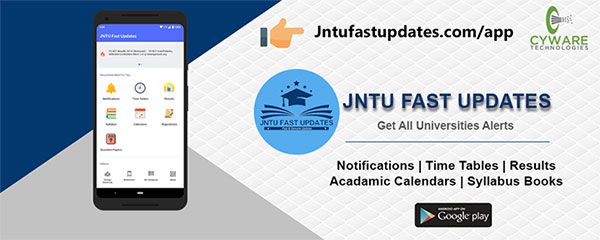JNTUK R20 3-1 Operations Research Material/Notes PDF Download
Students those who are studying JNTUK R20 Mechanical Branch, Can Download Unit wise R20 3-1 Operations Research (OR) Material/Notes PDFs below.

JNTUK R20 3-1 Operations Research Material/Notes PDF Download
OBJECTIVES:
- To understand the basics of operations research, applications and linear programming problems.
- To understand and apply the knowledge in solving problems of transportation, assignment and sequencing.
- To understand the replacement and game theories and apply the knowledge to solve problems.
- To gain knowledge about the waiting line models and project management techniques.
- To understand and apply the knowledge in solving problems of dynamic programming and simulation.
UNIT-1
INTRODUCTION – definition– characteristics and phases – types of operation research models – applications.
LINEAR PROGRAMMING: problem formulation – graphical solution – simplex method – artificial variables techniques -two–phase method, big-M method – duality principle.
Download UNIT-1 Material PDF | Reference-2
UNIT-2
TRANSPORTATION PROBLEM: Formulation – optimal solution, unbalanced transportation problem – degeneracy, assignment problem – formulation – optimal solution – variants of assignment problem- traveling salesman problem.
SEQUENCING – Introduction – flow –shop sequencing – n jobs through two machines – n jobs through three machines – job shop sequencing – two jobs through ‘m’ machines.
Download UNIT-2 Material PDF | Reference-2
UNIT-3
REPLACEMENT THEORY: Introduction – replacement of items that deteriorate with time – when money value is not counted and counted – replacement of items that fail completely, group replacement.
GAME THEORY: Introduction – mini. max (max. mini) – criterion and optimal strategy – solution of games with saddle points – rectangular games without saddle points – 2 x 2 games – dominance principle – m x 2 & 2 x n games -graphical method.
Download UNIT-3 Material PDF | Reference-2
UNIT-4
WAITING LINES: Introduction – single channel – poison arrivals – exponential service times – with infinite population and finite population models– multichannel – poison arrivals – exponential service times with infinite population single channel.
PROJECT MANAGEMENT: Basics for construction of network diagram, Program Evaluation and Review Technique (PERT), Critical Path Method (CPM) – PERT Vs. CPM, determination of floats- Project crashing and its procedure.
Download UNIT-4 Material PDF
UNIT-5
DYNAMIC PROGRAMMING: Introduction – Bellman’s principle of optimality – applications of dynamic programming-shortest path problem – linear programming problem.
Download UNIT-5 Part-A Material PDF
SIMULATION: Definition – types of simulation models – phases of simulation– applications of simulation – inventory and queuing problems – advantages and disadvantages.
Download UNIT-5 Part-B Material PDF
TEXT BOOKS:
- Operations Research-An Introduction/Hamdy A Taha/Pearson publishers
- Operations Research –Theory & publications / S.D.Sharma-Kedarnath/McMillan publishers India Ltd
REFERENCE BOOKS:
- Introduction to O.R/Hiller & Libermann/TMH
- Operations Research /A.M.Natarajan,P.Balasubramani,A. Tamilarasi/Pearson Education.
- Operations Research: Methods & Problems / Maurice Saseini, Arhur Yaspan & Lawrence Friedman/Wiley
- Operations Research / R.Pannerselvam/ PHI Publications.
- Operations Research / Wagner/ PHI Publications.
- Operation Research /J.K.Sharma/MacMilan Publ.
- Operations Research/ Pai/ Oxford Publications
- Operations Research/S Kalavathy / Vikas Publishers
- Operations Research / DS Cheema/University Science Press
- Operations Research / Ravindran, Philips, Solberg / Wiley publishers
OUTCOMES: After completion of the course, the student will be able to:
- CO1: Apply the basics of operations research and linear programming problems.
- CO2: Apply the knowledge in solving problems of transportation, assignment and sequencing.
- CO3: Judge the replacement and game theories and apply the knowledge to solve problems.
- CO4: Discuss the waiting line models and project management techniques.
- CO5: Apply the knowledge in solving problems of dynamic programming and simulation.

320-x100(1).gif)

Unit-4 and Unit-5 part A material links were not opening
Unit 4